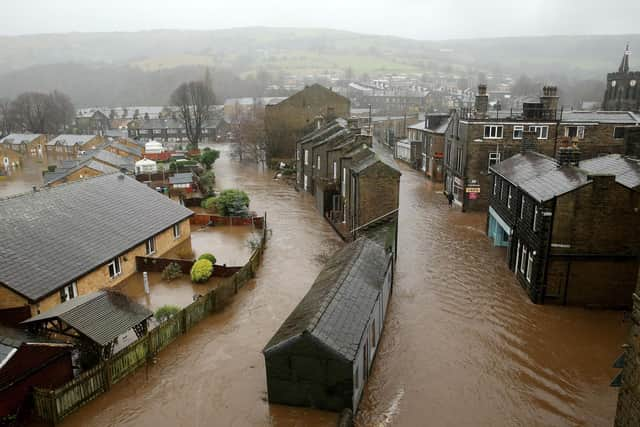Bradford, Calderdale and Doncaster councils highlighted for nature recovery roles as UK100 calls for more from Ministers
UK100, a network of local leaders committed to ambitious action on Net Zero, has called in Powers in Place: Nature for more consistency and investment from Ministers.
It has been billed as the “most comprehensive assessment of local authorities’ duties and powers to restore nature and biodiversity,” which is “underscored the urgent nature crisis in the UK”.
Advertisement
Hide AdAdvertisement
Hide AdBradford, Calderdale and Doncaster councils have been mentioned for their roles.


Richard Clewer, chairman of UK100's Countryside Climate Network, says: "Local authorities are crucial to bringing our natural world back from the brink. Our planning teams, highways officers, rangers and volunteers are all vital in protecting our wildlife and making space for nature to recover and thrive."
But he added that “we urgently need ministers to provide proper long-term funding and a coherent policy framework so all parts of local government can work together to tackle the nature crisis”.
The UK is one of the most nature-depleted countries in the world, the report warns, with 99.7 per cent of fens, 97 per cent of species-rich grasslands, 80 per cent of lowland heathlands, up to 70 per cent of ancient woodlands and up to 85 per cent of salt marshes destroyed or degraded.
Advertisement
Hide AdAdvertisement
Hide AdMeanwhile, one in five Brits live in areas deprived of green space while one in nine children have not visited a park, forest or natural environment in the last year, according to the network.


They add that since the 1970s, 41 per cent of all UK species studied have declined while 26 per cent of the UK’s mammals are at risk of extinction.
The report concludes that local authorities' nature recovery ambitions are hampered by constrained resources, “dysfunctional” policies and short-term, competitive funding.
It cautions that Ministers must provide a consistent policy framework, long-term investment, and more strategic coordination to empower local leadership to lead on nature recovery.
Advertisement
Hide AdAdvertisement
Hide AdWork in West Yorkshire to restore peatland is highlighted: Bradford City Council has committed £200,000 on Open Access Land and common land it owns and manages, alongside privately-owned land on peatland moors to carry out moss planting for carbon sequestration.
Christopher Hammond, chief executive of UK100, says: “Our peatlands are right at the heart of tackling the twin crises of climate change and biodiversity loss. They are the largest and most effective natural carbon stores we have ”“Despite their immense value, they are in peril. Ministers must also act urgently to reverse the delay on a promised complete ban on peat products until 2030.
“Councils want to lead the charge in restoring these vital carbon stores and habitats. They now need the powers and resources to make it happen.”
Meanwhile, Calderdale Council and the Environment Agency worked with charity Slow the Flow in response to devastating floods in the Calder Valley in 2015, affecting 2,781 homes and 4,416 businesses. They developed and researched Natural Flood Management, alongside the ‘hard engineering solutions’ to reduce flood risk to communities in the valley. These have included natural measures aimed at reducing and slowing the peaks of water reaching river courses after intense rainfall.
Advertisement
Hide AdAdvertisement
Hide AdAnd Doncaster Borough’s Local Plan was adopted in September 2021 and includes specific policies on green infrastructure, ecological networks, valuing biodiversity and geodiversity.
Mr Hammond adds: "Our report demonstrates that for too long nature has been an afterthought, which is why we’ve sleepwalked into becoming one of the most nature-depleted countries in the world."
The report shows, he says, that local leaders’ efforts are “undermined by dysfunctional policy and guidance and a proliferation of short-term, disjointed and competitive local authority funding pots”.
A Department for Environment, Food and Rural Affairs spokesperson said: “We are committed to restoring nature and local authorities have an important role in reversing the decline of biodiversity.
Advertisement
Hide AdAdvertisement
Hide Ad“We are supporting 48 councils to develop Local Nature Recovery Strategies with £14 million in funding. This is all alongside our legally binding targets on nature recovery and our pledge to protect 30 per cent of our land for nature by 2030.”